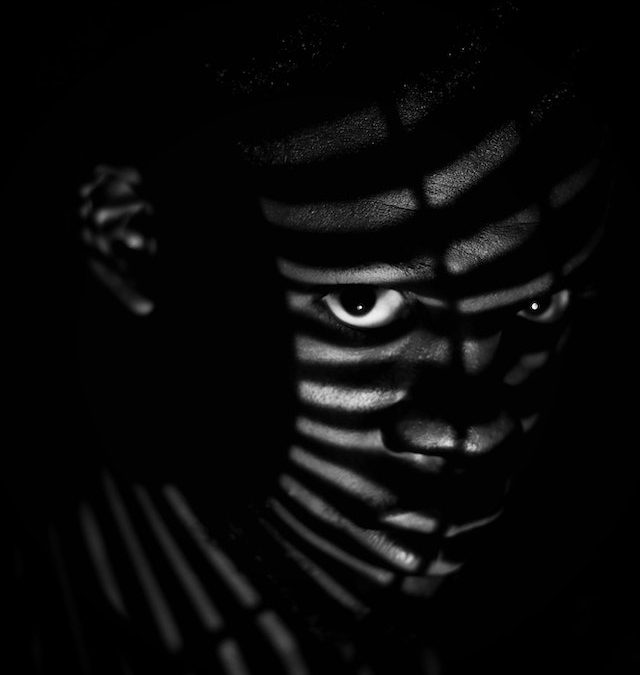Aliyu Yakubu is a Nigerian academic and writer. He lectures at the Department of Applied Biology/Microbiology, Federal Polytechnic, Nasarawa, Nasarawa State.
Kabiru, Is That You?
It was fifteen minutes past twelve on Wednesday morning. The Sharon in which Nasir and others had been travelling had just pulled off in front of a locked roadside shop, outside the Nasarawa market.
Only Nasir and two other passengers had remained in the vehicle – others had disembarked as they made their way into the town from the town’s gate.
“This is the last bus stop,” the driver, a short, stout-built man, supposedly in his mid-thirties, announced, with an air of finality. He opened the car’s door and stood outside, stretching his limbs amidst faint whining sounds of pain.
“Direba, Dan Allah, ka kara damu gaba; munada kaya,” a middle-aged man, who for most parts of the journey had been asleep, pleaded. He approached the driver, who was now standing in front of the vehicle, answering a phone call.
His appeal fell on the driver’s deaf ears.
“Kuzo mu mishi magana mana,” the man, not wanting to give up, started calling on Nasir and the other passenger to come together and further appeal to the driver.
The driver had now crossed to the other side of the road, exchanging pleasantries with a fellow driver who had all along been leaning against another parked Sharon.
“My house isn’t far from here,” the other passenger said as he bent down to pick his bag.
“I don’t think this man will change his mind,” Nasir said, shaking his head slightly.
“It’s okay,” the pleading passenger turned, walking towards his heap of luggage.
Nasir had finished his exam around eleven-forty-five in the morning of that day, and insisted on leaving for his town.
“Are you going home today? After the exam?” his roommate and friend, Musa, who lay on a mattress at the other end of the room, asked. He had been browsing through his notebook in preparation for his exam that held later in the day.
Musa was aroused as Nasir shuttled from one end of the room to another, picking his things.
“Yes, I’ll be leaving after my exam.”
“Today…?” Musa asked, his mouth half-open. “But night will catch you on the way. Don’t you think so? It’s not good travelling at night, you know… Your place is far away.”
“This isn’t the first time I’d be travelling at night,” Nasir said, not wanting to be dissuaded.
Musa didn’t say anything again as Nasir busied himself – arranging things in his bag.
“Safe journey. Greet your people for me,” Musa said as he stepped out of the room holding a plastic bucket. “We may not meet again.”
He went downstairs to fetch water.
Done arranging things in his bag, Nasir jammed the door and hurried along the corridor.
With the passengers now stranded by the road side, each chose the option that they thought would work best for them.
Holding his bag in his right hand and a backpack strapped to his back, Nasir started off down the road, ahead of the other passenger. He walked past the orange seller at Oversea Junction. The man was busy packing his wares into his small kiosk signifying the end of the day’s business.
Suddenly, he spotted a motorcycle coming towards him. He halted, heaving a faint sigh of relief. He quickly transferred the bag to his left hand and started waving his arm in the air – flagging down the motorcycle: “Going! Going! Going!”
The rider, carrying a passenger on his pillion, rode off with an air of nonchalance.
He continued on his track, muttering a prayer under his breath for God to bring forth an Achaba.
Nasir was now in front of Ado’s tea stand. The “Ado Mai Shayi,” scribbled over the entrance of the place stared at him under the bright light of the street lamp standing by the road. The man was also closing shop as he went to the far end of the tea stand and poured away wash water from a basin onto the ground. Nasir overhead a departing customer bidding the tea man, good night.
Now having lost all hopes of getting a bike, he increased his pace as he walked down the road. There was no soul in sight. Even the front gate of Nasara Comprehensive College where a watchman should have been, seemed abandoned. People have deserted this road early today, he mumbled to the listening silence.
On reaching the sawmill, he took the left turn that leads to Badejo Quarter – the flip-flop sound of his shoe echoing in his ears.
Suddenly a pack of dogs appeared on the scene. They were four in number as he figured out from their moving shadows in the semi-darkness. They seemed to be prowling about the vicinity. He stopped abruptly, slightly shaking as the leader of the pack charged at him, barking. The dog went on yelping, the others following.
Nasir had been used to dogs and their unprovoked barks – even at nights. But for unknown reasons, these ones struck a slight terror in him. He slowly put his bag on the ground and made to scare them away by bending down, pretending to pick a stone. The dogs stood their ground, growling furiously – working themselves into an attacking frenzy. He became more scared and stood shaking slightly. He collected himself together and sidestepped them. And continued on his journey home.
He glanced over his shoulder and could vaguely see their mouths open, in soundless snarl.
Nasir was now on the rough, untarred road that leads to his home in Ungwan Dorawa. The area was until three years ago, an empty land occupied by many locust bean trees.
An eerie feeling crept up in him, jarring his thoughts. His home was now barely seven minutes’ walk away. He began noticing shadows of boys standing under a mango tree, some two metres away. They appeared to be holding whispering consultations like shrine priests. Their murmur grew louder as he got nearer. This arrested him in his steps. They are just going their way, he thought as he resumed his walk.
The figures had now collected together and were coming towards him. Their voices grew louder as they approached him. He abruptly stopped.
The faint light from the stars up in the sky picked dirty brutish faces and bloodshot eyes of boys in tattered baggies, drawn switchblades and daggers, high on hashish, roches, and some other narcotics, he imagined.
In the semi-darkness, he counted five murderous eyes belonging to boys not older than him. And he could smell their unsteady breaths reeking of alcohol. He stood transfixed, his whole being sweating with fear and indecision.
He began replaying the scene of his friend advising him to postpone the journey till the next day and wished he had heeded the advice.
The supposed leader of the pack walked ahead of the others and was now within a few inches of where Nasir stood. He stopped in front of Nasir, peering intently into his eyes.
“Nasir!” he called out in faint-yell, turning around at the other boys standing behind him. Nasir ne fa! Ashe kai ne…” he added, smiling vaguely.
“Ah, Kabiru! Kai ne?” Nasir, smiling excitedly, said. Had now recognised the boy.
Kabiru and Nasir had been acquaintances since childhood. The duo had once lived in the same street before Kabiru’s family relocated to another neighbourhood.
Not long after they left primary school, Kabiru took to drugs – the end result of succumbing to peer pressure.
“Toh… ashe dan gida ne,” one of the boys responded putting his hand over his mouth, in feigned amazement.
Kabiru suddenly inched toward Nasir, patted him on the shoulder, and slowly drew him into a warm embrace. Nasir drew in breath with a sudden short audible intake as the blade of a sharp knife pushed past the wall of his stomach. His eyes widened as he peered into Kabiru’s eyes. There was a murderous glint in them. This was when he understood what was happening. He tried to draw back and put up a fight, but two of the boys rushed forward and held his hands to his back. Kabiru drew out the knife and plunged it again into Nasir’s tummy, twisting it this way and that – slashing the organs. He drew it out again and stabbed him two more times.
Kabiru finally released Nasir, who slowly went down on his knees – weak and bleeding. His breathing was now in short, painful bursts.
Nasir fell to the ground and remembered the innocent face of his mother, wondering how she was going to react to the news of his passing.
Kabiru stepped over Nasir’s body and pulled up the backpack. Another boy picked up the bag.
The boys collected together and disappeared into the darkness.
Nasir rolled on his face. The last thing he sensed was the taste of dust on his tongue.
Sharon – a type of commercial car now popular in many parts of Nigeria
Direba – Driver
Dan Allah – for God’s sake
Ka kara damu gaba; munada kaya – please take us further down the road; we have luggage
Kuzo mu mishi magana mana – Let’s come together and appeal to him, please
Achaba – a term for commercial motorcyclists in many parts of northern Nigeria
Kai ne? – are you the one?
Toh – okay
Ashe dan gida ne – it’s one of our own
Roches: A short term for Rohypnol
Contributor’s Bio
Aliyu Yakubu is a Nigerian academic and writer. He lectures at the Department of Applied Biology/Microbiology, Federal Polytechnic, Nasarawa, Nasarawa State. His poems and short stories have appeared in local and international literary magazines, including Arkore Writes, Spillwords Press, Ariel Chart, Kalahari Review, World Voices Magazine, amongst others. His poem was longlisted in 2020 Prof. Idris Amali Ekphrastic Poetry Contest. He is a lover of books and people that write them.
Become an Author Without Writing
We figured out how you can become an author without having to write! Check it out and see other services we render to get started.
Eboquills
Related posts
3 Comments
Leave a Reply Cancel reply
This site uses Akismet to reduce spam. Learn how your comment data is processed.






An interesting story
I fall in love With Aliyu’s story “is that you Ibrahim?” Maybe because the central character is my Namesake, anyways the story is well boothed, but the end left me with so much pain and grief.
A delightful read